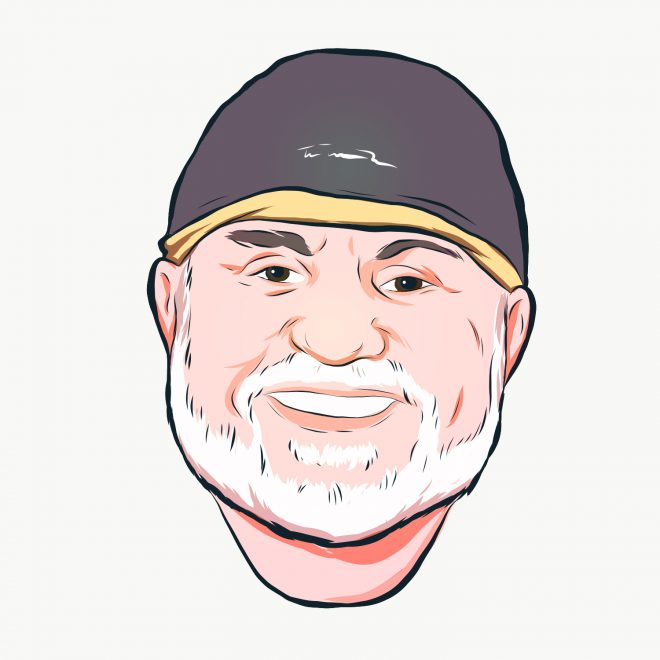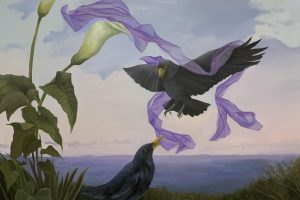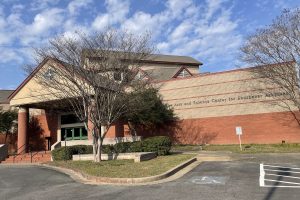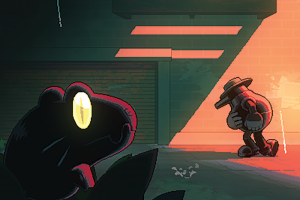THE AMIGO: Al “Papa Rap” Lopez

“What’s up, que pasa! What’s your name? Como te llamas? Let’s be friends, seamos amigos!” Al Lopez, commonly known by his stage name Papa Rap, has sung these phrases from his award-winning song “What’s Up, Que Pasa” to K-12 students and their parents since the early 1990s. His songs, radio shows and television programs have fueled growing bilingual education and acceptance in the region, and he’s not slowing down anytime soon. With an album in the works, the multi-award-winning artist continues to help parents and their students learn Spanish together through song and dance.
Al’s love for music started as a child when he found himself distracted from schoolwork and moved by the power of song. Although he ended up pursuing visual merchandising with JCPenney as an adult, he found his way back to music after a few trips to Northwest Arkansas for his day job. During these trips in the 1980s he connected with producers and musicians, but his wife and family weren’t comfortable leaving their home in Puerto Rico.
His lifelong musical passion shined through his work, and in 1994 his wife encouraged him to take the opportunity presented to him years before and travel back to Northwest Arkansas to record an album—but not without finding other work to support his family back home. That led him to a job as an interpreter and lunch monitor in the Rogers School District, where he discovered the power music had on troubled students. That was his cue; soon after, Papa Rap took to the stage.
Is there an educational or creative moment that sticks out in your mind when you reflect on your work over the years?
[In the school district] somebody had filed a complaint with the Office of Civil Rights saying that the Rogers School District was not complying to accommodate English as a Second Language learners […] I got a call from the school [district] superintendent and he asked me if I could help make something happen. […] So I asked him if I could train students to become an artist-traveling group and go sing my new bilingual songs in elementary and junior high schools in the district. […]
I talked to one of the [Rogers High] school assistant principals, Loyd Phillps—who had become a good friend and always had my back—and explained to him that I would like to have a whole day pow-wow with the students that were not getting along, and if he could be with me because kids really respected him for being an ex-Razorback player and for playing football with the Chicago Bears. So we planned it and sat with the kids in an open area, and we spent about four hours with them. Without interrupting, we let each one in a respectful way, say his part and towards the end we found there was a lot of “They said, we said, they were, we were.” So when they were done I told them that I felt that changes were not gonna happen overnight and that we needed some time to get to know what was inside of each other, and I added that I had a proposal for them. […]
So they started visiting schools with me and performing and after each show I would tell the little ones in the audience that my performers were still working on becoming friends and that the common ground that united them to do this was the music. And lo and behold these kids became role models for younger children and in a way they were forced to live what they were preaching through the music they were performing. But it didn’t take long before they really became friends.
How did your family and upbringing in Puerto Rico influence your desire to interact with and give back to the community in NWA? Is your family involved with your programs?
As time passes my children are growing, and I remember one day seeing my 15-year-old daughter and her friends as they listened to some rap music. I really felt that as my daughter grew up, I was losing her, that she wasn’t “Daddy’s little princess” anymore. I really didn’t like the message in the rap music she was listening to with her friends, especially because of my daughters age, so I decided I was going to write a rap song for her. I wrote a song called “Papa Rap,” and my daughter hated it, but her friends liked it a lot. I saw on local television [in Puerto Rico] that they had a talent search contest so I decided to participate singing my “Papa Rap” song. I remember that my two boys were little and they were with me on stage pretending to play instruments while I sang my song.
We didn’t win but somebody from the government TV channel saw us and contacted me to see if I had more songs and if I would be interested in participating in three episodes of a children’s show they had called “Pequeños en Acción” (“Little Ones in Action.” Even though I didn’t have more songs related to children, I told them I did and asked them for a two-week period to finalize the arrangements. In a week I wrote six more songs and the following week arranged them all with DJ JR, a guy that really gave me a helping hand. So we went on TV and this time I had my daughter, sons, nephews and nieces as part of the band. We were called La pandilla de Papa Rap (Papá Raps Gang). From that exposure we began to get a lot of calls to do presentations in children’s events all over the island.
As a child, Papa Rap expressed an interest in music but was unsupported by his father, so he abandoned the dream. As he pursued music in his 30s, his parents never knew about his trials and tribulations. In 1998, Papa Rap went to visit his parents in Puerto Rico and was excited to tell them about his collaboration with the Rogers School District and share the news about the $5,000 award he received from the John Lennon Songwriting Contest for “What’s Up, Que Pasa” in the children’s category, which he donated to the school for new equipment and supplies.
In Puerto Rico in a kind of confrontational conversation, I asked my father why he had not allowed me to follow my call as a musician. With tears in his eyes, he told me that he was sorry and my mother immediately interrupted him and told me, “Your father was a musician before you were born and his father before him. They had such a hard time and a hard life because of music that your father got scared when he saw you with that inclination.” Immediately my mom took out a book of songs that my father had written. From there on, my father became my biggest fan and I thank God that we had this closure before he passed away because I realized that all I wanted in my life was for my parents to accept me as who I was. That is why to this day, I am always telling parents my story so they can start identifying in their children their natural abilities so they can facilitate their children’s intellectual growth.
Where do you get the inspiration for songs like “Changes Don’t Happen Overnight”? How did you come up with the electrifying, smile-inducing theme song for “What’s Up, Que Pasa”?
The first day I went to work at Rogers High School, I was received by a giant [hateful] graffiti in the seniors locker area. Immediately I realized that there was a big problem, and that my job was going to be more than an interpreter and lunch monitor […] Every day I was breaking up fights between Anglos and Latinos and it was horrible. [I talked to a close friend] about my frustrations with my new job, and [he had] an idea of contacting a friend of his, a musician, producer, and drummer John Ware. John was a very creative person and suggested we create a public service announcement for TV with some of the kids that were having challenges in getting along. The PSA had two young ladies, one Latina and one Anglo that got along great, and two young men, one Latino and one Anglo that didn’t like each other very much. But this was an opportunity to be on TV so that was a common ground.
It was an instant hit, and every local television channel picked it up and these high school kids became overnight celebrities. So every day I would get kids asking me if I was going to do another TV commercial because they wanted to be in it. So that gave me an idea and it was to create a multicultural club. We met once a month, and in my first meeting I had mostly all the Latinos in school, around 50 but in the second meeting we had the 50 Latinos and about 100 other kids, mostly Anglos. As you can imagine, I had no experience and did not know what I was doing so I decided to start working on another commercial for TV and to write my first bilingual song. Remember that my main goal coming to Arkansas was to remix my album and get out of here as quick as I could. So in order to survive the moment I wrote my first bilingual song called “What’s Up, Que Pasa,” and again my good friend John Ware in conjunction with Ozark Film and Video helped me produce a music video with more high school kids.
The songs were born here, I guess as a way to express my desire of wanting the community to get along. I was dreaming and I realized that like John Lennon said, I wasn’t the only one.





Comments